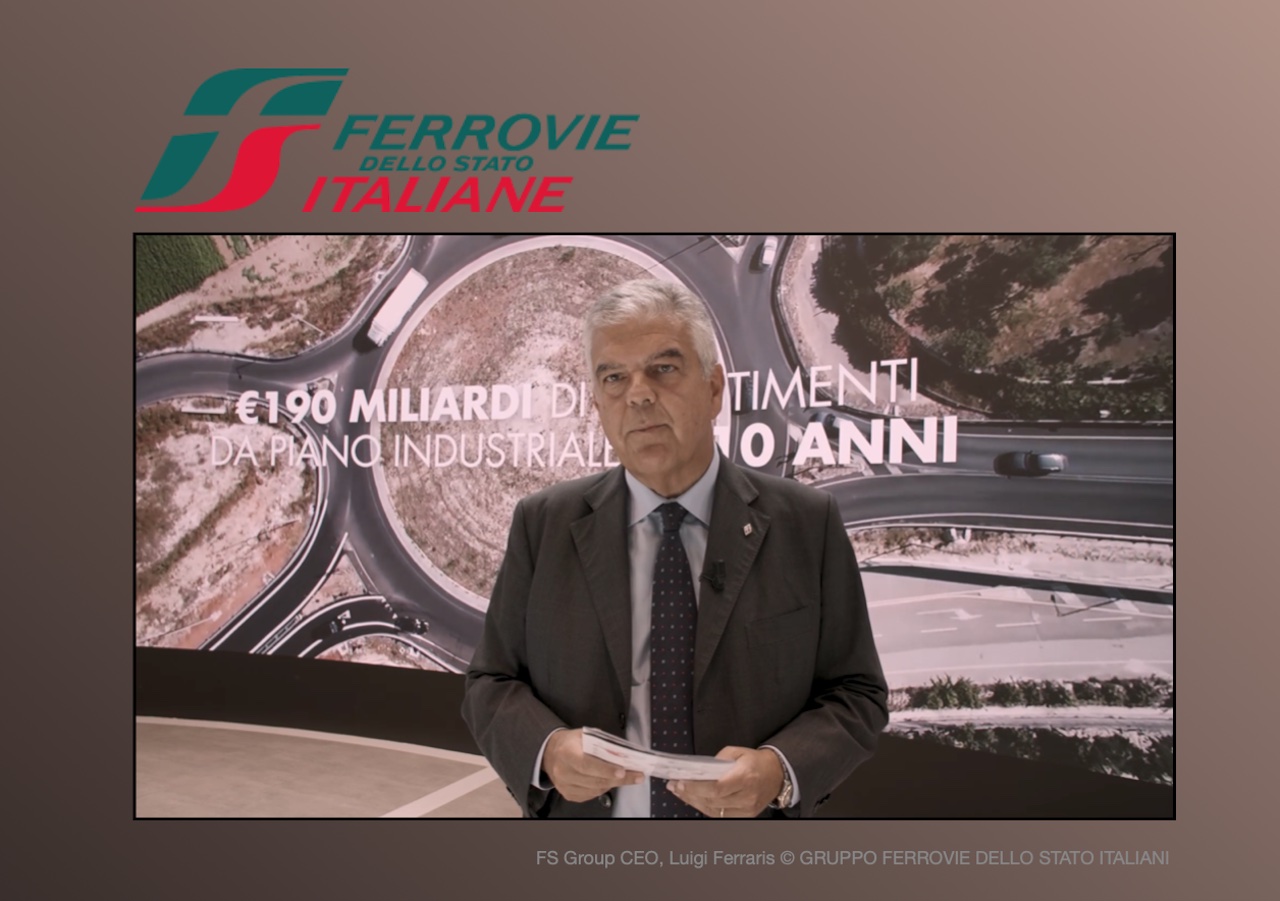Speaking at the Meeting for Friendship Among Peoples, held in Rimini from 20 to 25 August 2023, FS Group CEO Luigi Ferraris emphasized the role of Ferrovie dello Stato Italiane Group in the new development plans for Italian infrastructure, on which, Ferraris specified, approximately 300.000 people a year are engaged under the country’s National Recovery and Resilience Plan, part of the NextGenerationEU initiative.
Taking part in the round table Infrastructure and the National Recovery and Resilience Plan: development in Italy together with the Minister of Infrastructure and Transport, Matteo Salvini, the President of the Liguria Regional Authority, Giovanni Toti, the President of the National Association of Italian Municipalities and Mayor of Bari, Antonio Decaro, and with Maximo Ibarra, CEO & General Manager of Engineering, Luigi Ferraris reiterated the FS Group’s commitment to investing 200 billion euro over the next ten years to modernize and strengthen infrastructure with an average life of more than 60 years.
Transcription of remarks by Luigi Ferraris, CEO of the Ferrovie dello Stato Italiane Group
When you are talking about infrastructure, you can’t take a short-term view, especially when you are thinking about future developments. You need to understand current requirements, but you also have to imagine what our country will be like tomorrow, its vocation and its needs. This is the thinking behind this ten-year plan, which highlights a series of requirements linked to the projects launched on a massive scale under the National Recovery and Resilience Plan and now being implemented: the Naples-Bari route, for example, all the work going on in Genoa, all the work on the Genoa-Tortona Third Pass, what is happening in high-speed rail, on technological upgrading.
But this is the beginning, the beginning of a journey that in ten years must see Italy increase its passenger transport capacity by at least 20%, which means new tracks, new services and, above all, an even greater effort on its goods transport capacity, where we all run the risk of being overwhelmed, unless rapid action is taken. This isn’t just an Italian problem; it is a problem for Europe. And the block on the St Gothard Tunnel is creating great difficulties for goods traffic between north and south. Clearly, we are in a complex system, and above all an interconnected system
Transcription of remarks by Matteo Salvini, Italian Vice-President of the Council of Ministers and Minister of Infrastructure and Transport
We are investing 18 billion euro in Sicily and a further 18 billion in Calabria to improve the two regions’ roads, motorways and railways. This will make it quicker to drive or travel by train from Palermo to Messina and from Salerno to Reggio Calabria. If we spend tens of billions to get to Messina and Reggio Calabria fast, then stop, unload the train and have to queue for 4 hours to get on the ferry and cross the Strait, something isn’t working, so we are reasoning in terms of a network. This is not a bridge between Messina and Reggio, it is a link in the network between Palermo, Rome, Milan, Berlin and Stockholm. In other words, we are talking about an axis with Italy at the centre, the Mediterranean at the centre.

